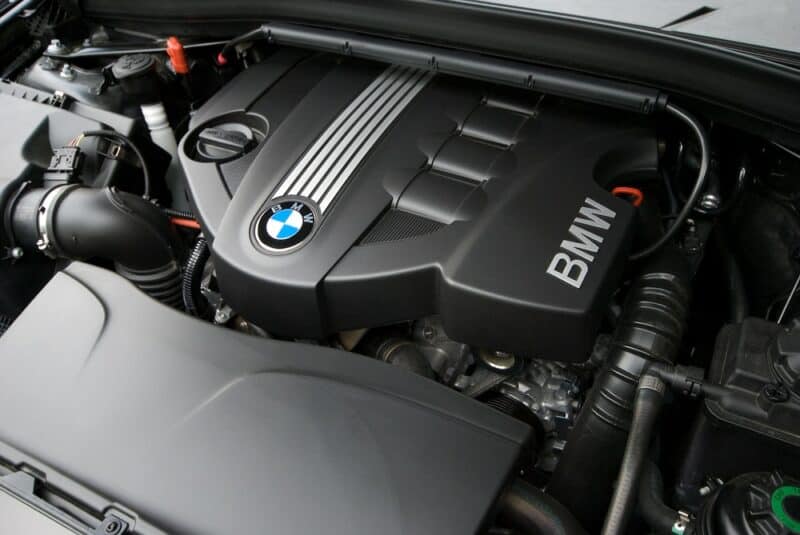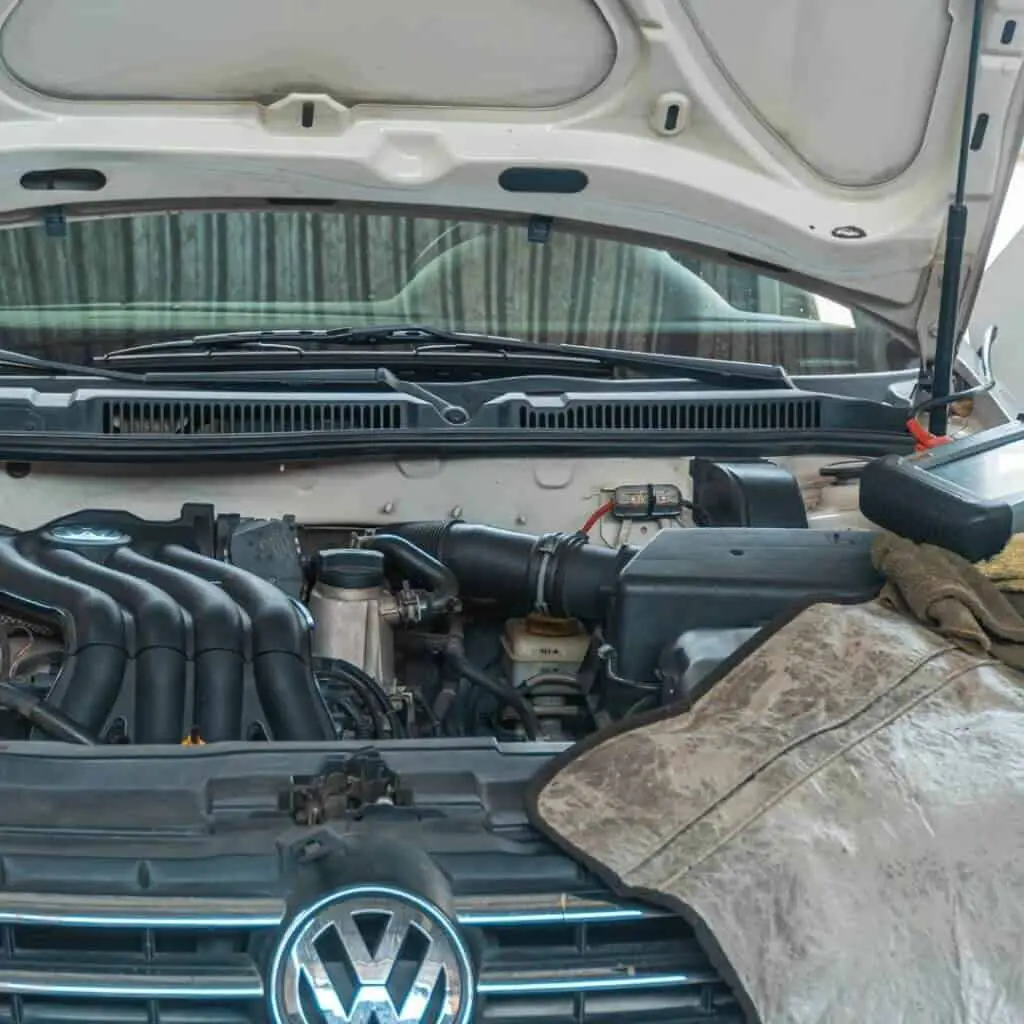Are you familiar with BMW N47 engine problems?
The BMW N47 engine is a four-cylinder, turbocharged common rail diesel engine. It replaced the M47 engine in 2007 and was superseded by the B47 engine in 2014.
The base configuration has a displacement range of 1.6 to 2.0L and produces 94 to 204hp. It is a modern engine that meets greater pollution standards by utilizing EGR and DPF technologies.
The N47 engine was installed in the 1 Series BMW E87 and E81 facelifts in March 2007 and, later the same year, was included in the 1 Series BMW E82 and E88. The engine has been used in the 5-Series E60 and E61 and the 3-Series E90, E91, E92, E93, and E94.
BMW N47’s engine is incredible with diverse advantages. Nevertheless, it frequently experiences problems that impact its performance, reliability, and safety. This article will discuss the common engine issues associated with the BMW N47 engine and suggest offer solutions.
BMW has been known for producing some of the best engines over the years. However, certain engines are more problematic than others, and N47 is one of them. Users have long complained about several faults with the BMW N47 engine.
The most significant issue with BMW N47 is trouble with the timing chain. There are also some concerns with the EGR system, water pumps and crankshaft sprockets, return springs, thermostats, and cooling systems.
Most Common BMW N47 Engine Problems

- Timing Chain Problems
The timing chain issue is the main concern with the BMW N47 engine. The starts to experience this problem regularly after your car reaches about 60,000 miles.
The timing chain on the BMW N47 engine fails prematurely, mostly due to poor tensioners that fail to impart the proper tension on the chains. The chain grows slack and loose after a while. This causes the timing chain to snap or break. [1]
Misfires in your N47 engine are one common sign of a failing timing chain. The chain connects the cam to the crankshaft.
If the chain is too stretched, it may cause the vehicle to skip a gear on either the crankshaft or the camshaft. As a result, it will become increasingly pressured and will finally break.
Rattling noises from the back of the engine and engine light are other typical indications of a damaged or malfunctioning timing chain. Furthermore, metal shavings in the oil indicate that your timing chain is faulty. It may produce metal shavings at the end of its useful life.
The metal shavings will then end up in your engine oil, possibly causing more problems. The most severely impacted models are engines produced between 2007 and January 2013. The BMW Series 1, 3, and 5 frequently experience timing chain problems.
- EGR Problems
The exhaust gas recirculation (EGR) system’s function is to aid the vehicle in meeting the higher emissions regulations. When the EGR malfunctions, it cause the engine to fail.
When the sensor becomes clogged with soot, it affects the EGR’s operation. As a result, it causes an increasing amount of exhaust air to recirculate into the intake. [2]
During this process, the hot exhaust gases cause the plastic intake manifold to melt and, in some cases, leak outs. The open EGR valve also causes a decrease in boosted pressure.
A wide-open EGR valve can cause soot to accumulate in fuel injectors, intake manifolds, and spark plugs. These constraints reduce airflow and make it difficult to start the vehicle in the winter.
The diesel particulate filter (DPF) removes soot and diesel particulate matter from exhaust gases. It functions properly at high temperatures.
During numerous shorter trips, the DPF does not heat enough to remove soot, and exhaust gases escape unfiltered. This causes soot to accumulate on your turbo, DPF sensor, EGR sensor, and even your engine’s spark plugs.
Another source of EGR issues is a faulty vacuum hose. If there is a hole in this pipe, the EGR cooler will not be bypassed during engine warming. Ultimately, it will result in a buildup that can lead to melting holes, leaks, and even fire. [3]
- Failed Return Spring
BMW made a mistake in the manufacture of the BMW N47 engine. The return spring on the turbo’s wastegate needed to be lubricated or covered first.
Wastegate remained partially open, which caused the early failure in the return spring. Consequently, this caused a successive reduction in compression, thus increasing fuel consumption by more than 30%. [4].
- Crankshaft Sprocket Failure
The crankshaft sprocket failure, like the broken return spring, is a manufacturing flaw. Because of a manufacturing fault during the N47 engine’s production, the sprockets move the chain to the pressure pump on the camshaft. As a result, the chain will snap in half, causing severe damage to the engine.
- Crank Case Breather Oil Leakage
The problem frequently occurs during high temperatures when the rubber crankcase breather hose leaks out. Oil leakage indicates this from the hose end. This problem, however, was resolved by BMW by replacing it with a stiffer plastic hose.
Your car may also experience sludge or moisture accumulation in the engine, black smoke, or increased engine pressure. The vehicle could have a ripped hose.
Eventually, it will result in engine misfiring, rough idle, or a difficult engine start. Also, there could be engine oil in the PCV valve or hoses and a lean mixture of air and oil.
Without the crankcase ventilation system, your engine would leak excessive unburned fuel and oil. Understanding the signs will help you detect a problem with your BMW’s CCV valve early enough. [5]
- Power Steering Pump problem
On the BMW N47 engine, the power steering pump is similarly unreliable. If this unit fails, there will be an abrupt loss of power in the power steering, causing the steering to become extremely heavy at low speeds. The problem is easily identified by oil leaking around the top of the steering oil reservoir. [6]
- Faulty cooling system
The cooling system circulates water and coolants throughout the engine. This allows the engine to run at an ideal temperature. The cooling system of the BMW N47 sometimes fails, affecting engine performance. The main causes are the water and thermostat. [7]
Fixing the BMW N47 Engine Problems
Most of the above problems can be avoided by always taking proper care and maintaining your BMW N47 engine. This includes regular and timely servicing and repairs. The timing chain should be replaced every 60,000 to 100,000 miles [11].
Moreover, to avoid excess soot buildup, clean your car’s EGR sensor and ensure timely oil changes. Nevertheless, cleaning the EGR valve is only a temporary remedy because an old EGR valve gasket may also be damaged.
Pay attention to the DPF or engine warning light. BMW advises that DPF cleaning be performed every ten years or 120,000 miles. However, premature DPF clogging is frequently due to improper engine operation or a malfunction, which should be diagnosed before DPF cleaning.
Therefore replacing the EGR valve gasket to avoid the double cost is the best thing to do rather than simply cleaning it. If you own a car with a BMW N47 engine, you must solve any issues with the vehicle and have it checked regularly.
Generally, you must monitor the engine’s components and follow the maintenance schedule because failing to do so will cause your vehicle to stall in traffic, putting you and other drivers in danger.
A BMW with the N47 engine maintenance can cost more than $1,100 on average. If a significant problem arises, this expense may top $8,000 in some cases. For instance, replacing a defective timing chain tensioner may cost you at least $830.
Read Next: BMW N57 Engine Problems
Conclusion
Generally, the BMW N47 engine is both powerful and efficient. It also has a great work culture because it does not vibrate excessively and produces a pleasant sound. The only drawback is that it has major faults, such as a bad timing chain, a failed power steering pump, a faulty crankshaft sprocket, EGR troubles, and a failing return spring.
These issues greatly affect the car’s reliability and dependability. If you decide to buy the BMW N47 engine, you should be prepared to spend a lot of money on repairs and maintenance.
This is due to the numerous problems experienced, making the engine incredibly expensive.
Maintaining a car with an N47 engine is expensive because BMW parts are also very expensive. Nonetheless, this engine can survive over 250,000 kilometers with good care and maintenance.
Read Also: BMW X3 Years To Avoid




